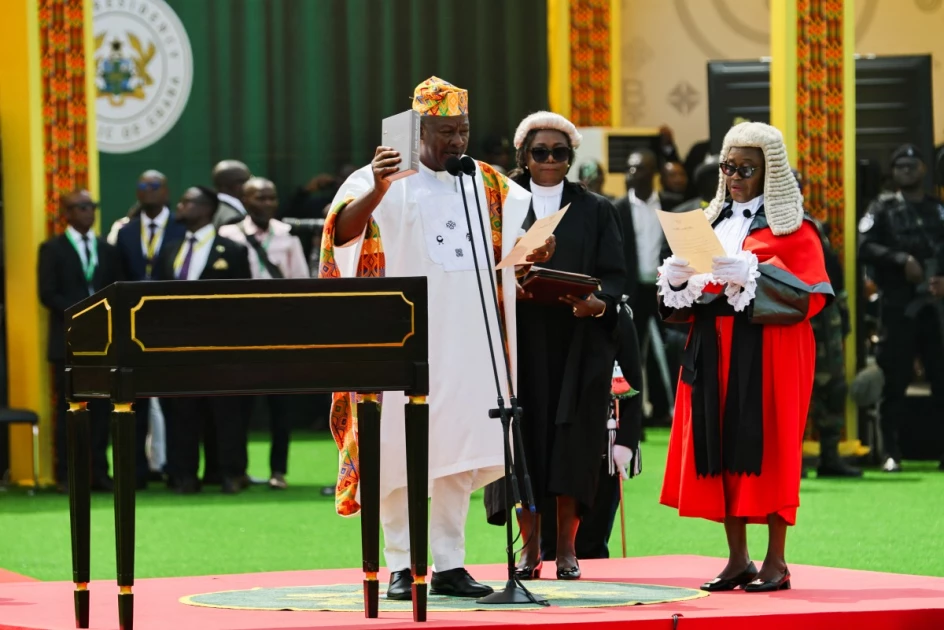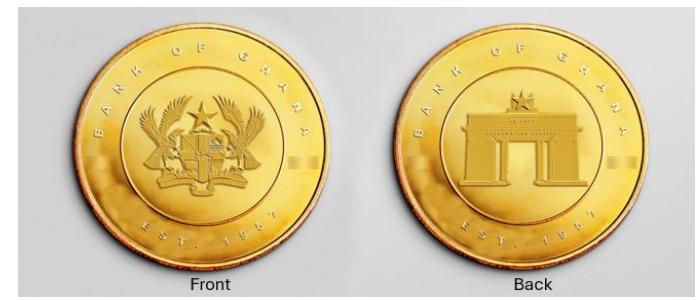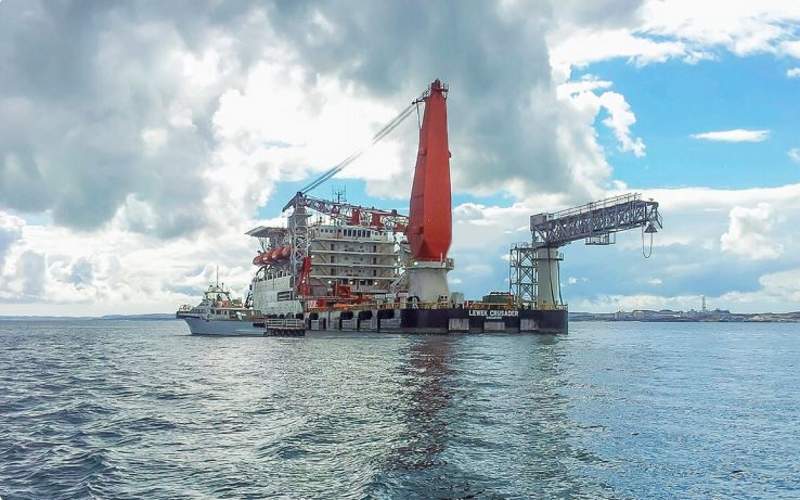John Dramani Mahama, 66, has been sworn in this Tuesday Jan.7 for his second term as Ghana’s president following a decisive victory in the December 7 election. The swearing-in ceremony in capital Accra took place in the presence of some 20 regional leaders.
King Mohammed VI of Morocco was represented at the ceremony by Speaker of the House of Representatives Rachid Talbi Alami, who was accompanied by Foreign Minister Nasser Bourita.
John Mahama, who previously served as President from 2012 to 2017, returns to office after a decisive victory in the recent general election. His campaign focused on themes of hope, progress, and a renewed vision for the country, as well as promises to lift the West African gold and cocoa producer out of the doldrums. He takes over from outgoing president Nana Akufo-Addo, who served two terms in power.
Citizens of this cocoa-rich West African nation actually hope his return to office will address enduring concerns such as corruption, youth unemployment, rising inflation, and public skepticism toward the political system.
Mahama assumes leadership at a time when Ghana’s economy is displaying signs of recovery after a period marked by the COVID-19 pandemic, a cost-of-living crisis, an International Monetary Fund bailout, and a sovereign debt default. Although growth has resumed, analysts warn that Ghana’s youth urgently need jobs, while the broader populace expects him to take tangible steps against entrenched corruption.
Mahama’s National Democratic Congress (NDC) holds a two-thirds parliamentary majority, a development that supporters believe will enable him to implement decisive reforms. However, a looming power crisis reminiscent of his previous tenure threatens to undermine progress. During his first term, frequent power outages, macroeconomic instability, and corruption allegations impacted both the nation’s infrastructure and public trust in governance.
Energy arrears of over two billion dollars remain a daunting challenge, risking setbacks for businesses and households alike. Observers note the need for lasting solutions to Ghana’s energy shortfalls through new financing agreements and partnerships with private power producers, who currently supply about 40 percent of the country’s electricity.
Ghanaians also expect immediate policies to combat soaring inflation, which reached 23 percent in November due to escalating food prices. Many believe that reducing corruption, investing in agriculture, and restoring economic stability will be critical to Mahama’s success.



